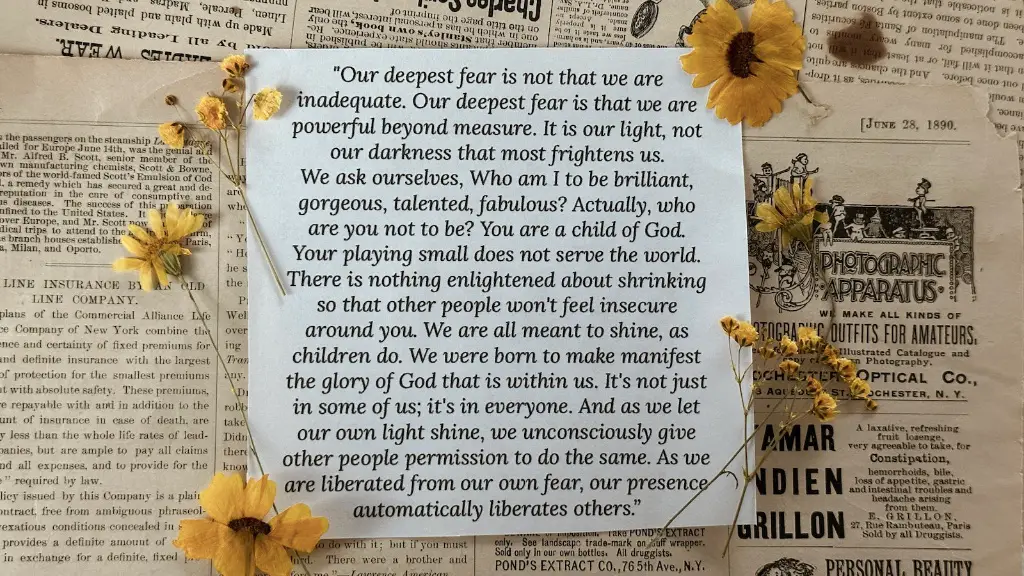Making Use of the Resources Available
As a prospective organizer of poetry workshops, it is important to make use of all the resources available and organized them well. This includes using your knowledge and research, approaching poetry professionals, building contacts in the poetry community, identifying financial resources, and also drawing on your personal intuition. All these resources may be used to create a successful workshop.
Creating an Appropriate Space
The workshop should be held in an appropriate space, preferably a comfortable one, where poets can practice, read, and perform their works. Consider the atmosphere of the space and prepare for possible outcomes. Ensure the space allows for introduction and discussion, so communicating ideas and questions is not difficult.
Choosing Suitable Poets
It is important to ensure the workshop has at least some experienced poets present. A good mix of newcomers and seasoned veterans will bring in interesting experiences, opinions, and exchanges of ideas. Introducing new and emerging poets at the workshop will be a great opportunity to create a new scene of poets and introduce the general public to their work.
Formulating an Agenda
A well-formulated agenda is essential in order to organize a successful workshop. Putting together a useful agenda can help in getting the most out of the session. Outline the key topics to be covered and decide who will be responsible for delivering the information. Preparing discussion points, written materials, and other tools should be included in the agenda.
Organizing a Poetry Competition
Adding a friendly competition is a great way to invigorate the creativity and enthusiasm of poets in the workshop. It is important to outline the rules of the competition and the criteria before it begins. Additionally, the rewarding system should be clarified so that the contestants will be motivated.
Hosting an Open Mic Session
Holding an open mic session is an ideal way to allow new poets to debut their works in an audience setting. This helps to foster a supportive poetry environment for the poets and shows them how beneficial it can be to practice and write in a collective setting.
Providing Valuable Critique and Feedback
Critique and feedback are a crucial part of a poetry workshop. They allow the poets to understand their weaknesses and strengthen them. Provide feedback and advice in a constructive, encouraging, and educational manner. Encourage the poets to share their experiences and learn from each other.
Making Use of Technology
Making use of technology can help to add variety to the workshop. Poets can use a variety of online resources to find inspiration, get feedback, and engage with other poets. Additionally, online platforms can be used to host the workshop and make it accessible to a wider audience.
Building Networking with Other Poets
Networking with other poets is an important part of the workshop. It is important to encourage the Poets to build not just professional relationships with each other, but also personal ones. This helps in creating a strong community of poets and can be beneficial for their development and growth.
Promoting the Poetry Workshop
Promotion is key in drawing a larger audience to the workshop. Promote the workshop through flyers, posters, podcasts, interviews, and other marketing tools. Seek out media outlets such as blogs, newspapers, and radio shows to promote the workshop and invite guests to attend.
Exploring Different Themes and Genres
Exploring different themes and genres adds to the variety of the workshop. Experiment with diverse topics to get new ideas and to explore new methods of writing poetry. Introduce new forms of poetry and encourage people to explore different ways of writing.
Providing Useful Reading Materials
In order to stimulate the poets’ own works, provide them with useful reading materials. Find readings, anthologies, historical books and invite experts to share their knowledge and experience with the poets. This will open the poets’ eyes to possibilities and give them new perspectives on writing.
Organizing Group Activities
Organizing activities that allow poets to work together is an effective way to foster creativity and a sense of community. These activities may include visual exercises, improvisation games, writing challenges, and even readings. These activities will create an atmosphere of collaboration that can be beneficial for all the poets.
Encouraging Poets to Pursue Publication
Once the poets have become more confident and experienced in their work, it is a good idea to encourage them to pursue publication. Guide the poets to the appropriate outlets and help them to prepare their work for submission. This will provide them with the chance to reach a larger audience with their work.
Conclusion
Organizing a poetry workshop can be a great way to bring together poetry professionals from different backgrounds. Making use of all available resources, creating a suitable room, recruiting a good mix of poets, and organizing activities are all important in a successful workshop. Additionally, promoting the workshop, providing readings, and encouraging poets to pursue publication will further enhance the atmosphere and be beneficial to the poets.



